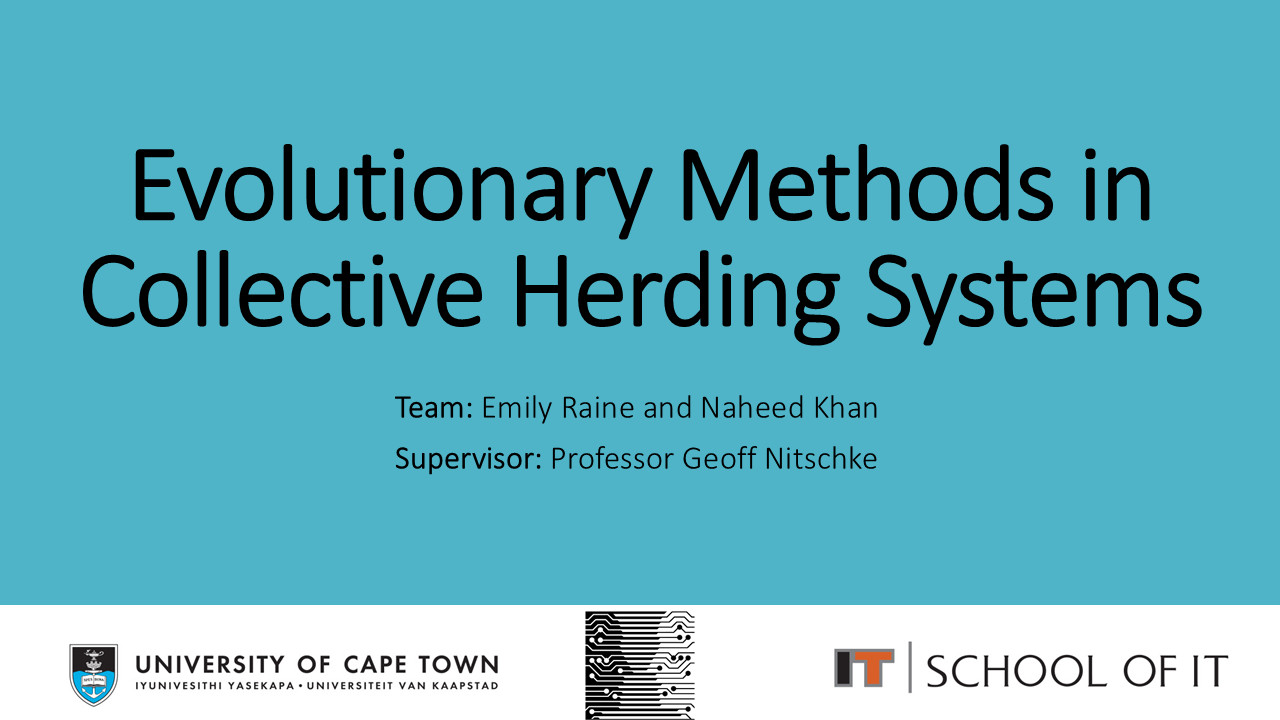
Abstract
This project extended a 2D sheep-herding multi-agent system, where dog agents herd sheep into a target zone. We investigated the effectiveness of hybrid evolutionary methods in dynamic environments and compared the performance of agents with fixed versus evolving morphologies as environmental complexity increased. Emily Raine's study compared two hybrid evolutionary algorithms, Novelty-Surprise Search with Local Competition (NSS-LC) and Dominated Novelty Search (DNS), and the objective-based Steady-State Genetic Algorithm (SSGA) on a sheep-herding task in increasingly complex dynamic maze environments. Performance was evaluated in terms of exploitation (sheep captured) and exploration (solution diversity) to investigate which algorithm achieved the ideal exploration-exploitation balance. Naheed Khan's study used a simulated herding task in environments with varying terrain as a case study to explore the impact of environmental complexity on the body-brain evolution of herding agents, and to investigate the effectiveness of simultaneous body-brain evolution in improving the performance of the multi-agent system across environments with varying terrain.
Videos 1
Watch presentations, demos, and related content
This video demo explains our project on evolutionary methods in collective herding systems.
Like, comment, and subscribe on YouTube to support the creator!
This video demo explains our project on evolutionary methods in collective herding systems.
Gallery 1
Explore the visual story of this exhibit

Title Image